


How Many Laws Were Struck Down by the Supreme Court in Israel?
Written By: Dr. Amir Fuchs
With calls to enact an 'override clause' to push back against judicial review back in the news, Dr. Amir Fuchs analyzed the twenty laws the Court has overturned since Israel's establishment
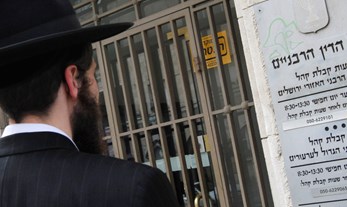
Turning Back the Clock on Religious Services
Written By: Dr. Ariel Finkelstein
The Israeli religious courts are being handed back to the ultra-Orthodox parties - will they adhere to professional standards?
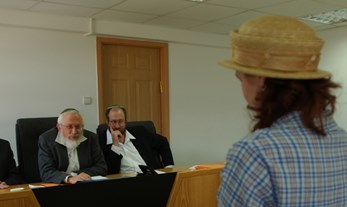
Proposed Conversion Law: A Recipe for Disaster
The attempt to circumvent the Supreme Court's ruling and strengthen the Rabbinate's monopoly and endanger the fragile balance in place today
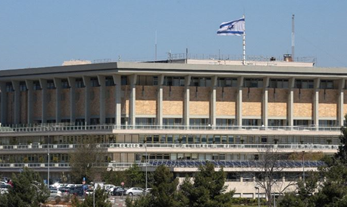
The Knesset - Lessons from the Coronavirus Crisis
Written By: Avital Friedman, Dr. Assaf Shapira
This document examines the functioning of the Knesset during the emergency situation created by the COVID-19 pandemic, in a comparative perspective with other countries, and draws conclusions on the changes that are needed to improve its work in future crises.
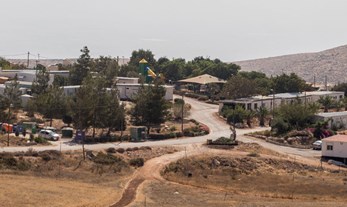
When the Supreme Court Struck Down the Regularization Law
Written By: Prof. Amichai Cohen
Israeli's Supreme Court ruling on the Regularization Law touches on the heart of the legal battle inherent in the power struggle between settlers and Palestinians.
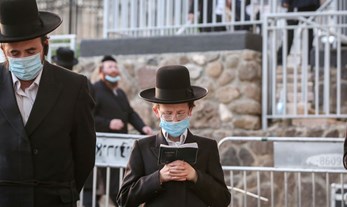
Integration of the Ultra-Orthodox the Wake of the Coronavirus
Written By: Dr. Gilad Malach, Ruben Gorbat
In wake of the coronavirus pandemic, IDI experts present a status report on the current state of Israel's ultra-Orthodox community as well as policy recommendations for how to better integrate them into Israeli society
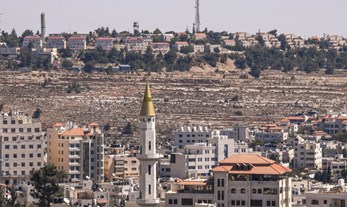
Supreme Court Ruling on Law for Regulating Settlements
Prof. Amichai Cohen explains the Supreme Court's decision to strike down the Land Arrangements law.
Discontinuing the ISA Tracking
Dr. Tehilla Shwartz Altshuler on why she supports the decision to halt ISA surveillance of covid-19 positive Israelis.

Without Trust, There Can Be No Compliance
Written By: Dr. Dana Blander
The Israeli public deserves leadership that isn't weighed down by a track record of incoherent instructions, selective enforcement, and politicians’ own failure to comply
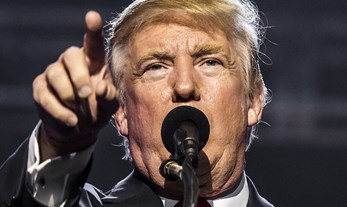
Regulating Offensive Online Speech—Are the Times Finally A-Changin’?
Written By: Prof. Yuval Shany
The fast-moving escalation in the conflict between President Trump and Twitter in the last week of May may prove in hindsight to be a watershed development for the legal architecture of online social media.

Half of Israelis Favor Applying Sovereignty
Written By: Prof. Tamar Hermann, Dr. Or Anabi
The Israeli Voice Index for May 2020 found that 50% of the public supports applying Israeli sovereignty over parts of the West Bank (Judea and Samaria) with the U.S. administration’s support (25%) and without American backing (25%)
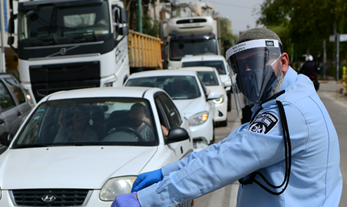
Coronavirus Bill - Professional Opinion Excerpts
Written By: Dr. Amir Fuchs, Prof. Mordechai Kremnitzer, Adv. Lila Margalit
The proposed bill, which is slated to replace the existing emergency regulations, limits Knesset oversight - the very reason this 'primary legislation' is so necessary
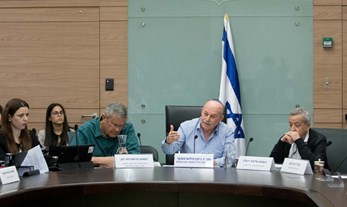
Who Will Investigate the Coronavirus Crisis?
Written By: Dr. Dana Blander
There have been calls to investigate the government’s handling of the coronavirus crisis – but who should do the investigating?

Policy Recommendations for the Minister of Religious Services
Written By: Dr. Shuki Friedman
After three contentious election campaigns Israel's new government has been sworn in. IDI's experts weigh-in with their recommendations on the most important issues on the agenda. Dr. Shuki Friedman on the challenges facing the 35th government in matters of religion and state.
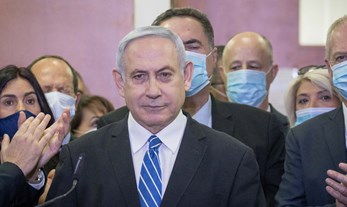
On the Street or in the Courtroom?
Written By: Prof. Yedidia Z. Stern
The Prime Minister’s supporters are trying to entrench a perception among the public that he is facing a political – rather than a criminal – trial.
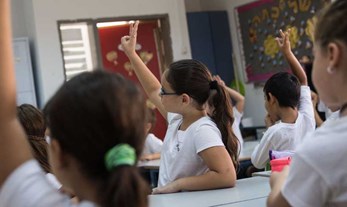
Policy Recommendations for the Minister of Education
Written By: Dr. Tammy Hoffman
After three contentious election campaigns, Israel's new government has been sworn in. IDI's experts weigh-in with their recommendations on the most important issues on the agenda. Dr. Tammy Hoffman outlines policy recommendations for the new Minister of Education.
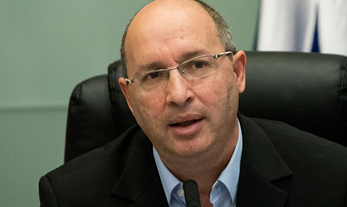
Recommendations for the Incoming Justice Minister
Written By: Dr. Nadiv Mordechay
After three contentious election campaigns Israel's new government has been sworn in. IDI's experts weigh-in with their recommendations on the most important issues on the agenda.

Policy Recommendations for the Minister of Culture and Sports
Written By: Adv. Edna Harel Fisher
After three contentious election campaigns Israel's new government has been sworn in. IDI's experts weigh-in with their recommendations on the most important issues on the agenda. Edna Harel-Fisher presents recommendations on cultural policy.

The Rule of Law Over the Ruler
Written By: Prof. Yedidia Z. Stern
It's one of democracy's substantial achievements: just like every citizen, Netanyahu will stand before 3 judges, whose task is to decide whether he is innocent or guilty
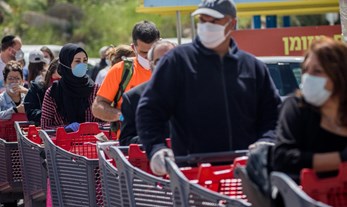
Second Wave is a Matter of Time
More than half of Israelis think a second wave is a matter of time and 39% think that the return to normalcy is too fast

IDI's Legal Experts Hold Online Briefing Ahead of Netanyahu's Trial
With Prime Minister Netanyahu's groundbreaking trial is set to commence next week, Professor Yuval Shany, IDI's Vice President of Research, and Dr. Amir Fuchs, the head of the Defending Democratic Values Program, briefed journalists on how the court process will proceed and the long-term legal implications of trying a sitting prime minister.
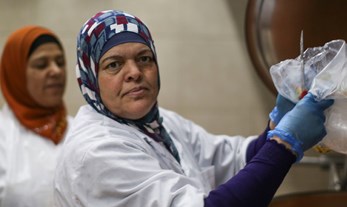
Arab Society in the Wake of the Coronavirus: Policy Recommendations
Written By: Dr. Nasreen Haddad Haj-Yahya, Ayman Saif
After three contentious election campaigns, Israel's new government has been sworn in. IDI's experts weigh-in with their recommendations on the most important issues on the agenda. Dr. Nasreen Hadad Haj-Yahya and Ayman Saif on the urgent challenges facing the 35th government to address the significant economic gaps that between Israel's Jewish and the Arab populations.

Israel’s Cease-Fire Government Should Promote Healing, Not Division
Written By: Yohanan Plesner
Netanyahu and Gantz could use their unity government to put in place a 'democratic ceasefire' and speed Israel’s economic recovery rather than entrenching political deadlock.

Improving Israel's Security and Resilience
Written By: Prof. Amichai Cohen
After three contentious election campaigns Israel's new government has been sworn in. IDI's experts weigh-in with their recommendations on the most important issues on the agenda. Prof. Amichai Cohen writes about the matters that should be at the top of the agenda to improve Israel's security and resilience.
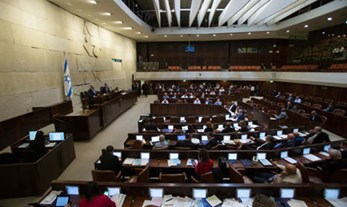
IDI Supports Enacting the “Norwegian Law”
Knesset members should be available for parliamentary legislation and oversight

Israel’s 35th Government: A Portrait
Written By: Prof. Ofer Kenig
After 18 months of political deadlock, Israel’s 35th government was sworn in - and in many ways it's quite unique.
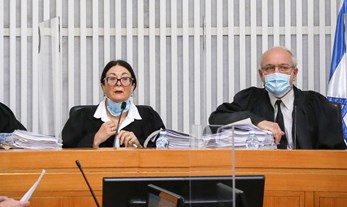
Live Broadcasts from the Supreme Court
Written By: Yair Sheleg
Live broadcasts brings a breath of fresh air and a better understanding of the Supreme Court
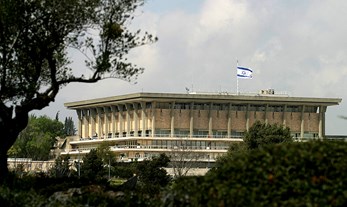
Don’t Call It a Comeback
Written By: Dr. Shany Mor
In mature democracies, parliaments are regaining their relevance in the coronavirus era.

No Justification Whatsoever
Written By: Prof. Ofer Kenig
The establishment of the Netanyahu-Gantz government required many compromises.That being said, there is absolutely no way to justify the extravagant size of the new government
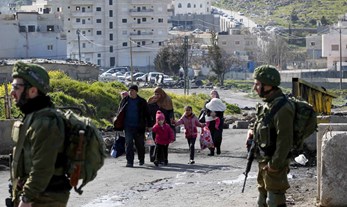
Over Half of Jewish Israelis Support Annexation
Written By: Prof. Tamar Hermann, Dr. Or Anabi
The Israeli Voice Index for April 2020, found that 52% of Jewish Israelis support Prime Minister Benjamin Netanyahu's stated policy of extending Israeli sovereignty in the West Bank, however only 32% believes Israel will move forward with this in the coming year.

